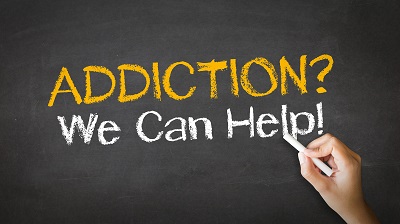Addiction is a deceptive by nature and addicts as well as their loved ones often fail to recognize it as the debilitating disease that it is because it lacks the more clearly defined perimeters of diseases such as cancer. It is often easy for everyone involved to dismiss addiction issues as moral failings or personal weaknesses, and addicts frequently lose their sense of self-worth as a result of this type of judgmental reaction. Interactions with friends, family, coworkers, and acquaintances involving anger and frustration over the addict's behavior further erode their self-esteem.
Friends and family members are pulled along as the addict enters a downward spiral, and everyone's quality of life suffers as a result. Children, in particular, may be affected because they lack the feelings of safety that come with having a fully functional parent. Spouses of addicts may vacillate between making excuses for their loved one's behavior, trying to cover up for them, becoming mired in self-doubt. They may even blame themselves for the predicament that they and their families have found themselves in. In some cases, they join their partner in addiction, doubling the tragic consequences for everyone involved.
A family member trying to get someone to rehab may have to convince the person that the valuable, loving person they once were can come back. That the relief they need from the guilt lies in an effective rehab program, and that the sobriety they want in their heart is on the other side of this relief. After all, no matter what anyone says, no one wants to become an addict. Getting into treatment early is important, and the sooner you can begin the conversation around treatment with your loved one, the better. A conversation about treatment could help save your loved one’s life and help them start a journey towards recovery.
Survival Strategies for Those Whose Loved Ones Are Struggling with Addiction
Clear survival strategies help family and friends of addicts deal with the emotional roller coaster of being close to a person who is struggling with addiction issues. One of the first rules of successfully coping with this extremely trying time is to faithfully practice self-care. Local support groups designed specifically for those whose loved ones are dealing with addiction provide an excellent resource. Family therapy is essential in instances where the affected family includes children. An extremely effective model is Community Reinforcement and Family Training (CRAFT), which is based on a holistic philosophy and is centered around positive enforcement. CRAFT provides loved ones with tools that help keep them from crossing that sometimes thin line between supportive and becoming an enabler.
- A supportive person is receptive and encouraging when the addict expresses curiosity about possible treatment options.
- An enabler is one who provides the addict with money even though he or she knows it will be spent on drugs or alcohol.
- A supportive person educates themselves about addiction issues in order to provide addicts with positive support and understanding.
- An enabler fails to establish appropriate boundaries and often puts the feelings and needs of the addict above their own, which only infuses another layer of chaos into an already dysfunctional situation.
- A supportive person sets firm, clear limits, and stands their ground.
Approaching an Addict Proactively and Positively
Approaching an addict about his or her substance abuse and the effects it is having on others rarely works out well if it's done in an accusatory, demanding manner. Instead, friends and family members should remain calm, be civil, and choose an appropriate time and place. The most important thing to do is to be supportive and make certain that they understand that the home environment will be conducive to successful recovery. Loved ones should choose a time when neither one is under the influence of alcohol or drugs. Non-blaming language is an essential component in successfully communicating with someone who is struggling with an addiction to alcohol or drugs.
- Non-blaming language uses "I" statements instead of starting sentences with "you."
- Advice should be withheld until the addict expresses a sincere desire to listen.
- Addicts may become defensive during the course of conversations about their treatment options.
It is highly possible that using accusatory language and offering unsolicited advice will result in the addict going even further into denial, so loved ones need to resist the urge to lecture. If the discussion takes a defensive turn, it's best to let the issue go for the time being. The road to recovery is full of many twists and turns, and it often takes many conversations before the addict is ready to take the first essential steps. The addict should never be threatened or shamed -- these tactics are counterproductive because they just serve to erode trust and cultivate negative emotions. It's important that the lines of communication remain as open and honest as possible, and, when circumstances permit , to involve close friends, family members, and other concerned parties in an organized intervention.
If at First You Don't Succeed...
 Addiction is a chronic disease that may involve relapse, and there is no one-size-fits-all answer that is going to work for each individual. That's why our customized outpatient addiction recovery programs achieve significant degrees of success -- because we provide intense treatments designed around the individual needs and preferences of each person in our care. Our clients are treated with respect, love, and dignity in order to break the vicious cycle of shame and guilt that fuels the majority of addictions. We realize that the recovery process is an ongoing, lifelong process, and our goal is to provide clients with the tools necessary to remain clean and sober for the rest of their lives. We believe that no situation is hopeless and that all people must find their own paths in all aspects of life.
Addiction is a chronic disease that may involve relapse, and there is no one-size-fits-all answer that is going to work for each individual. That's why our customized outpatient addiction recovery programs achieve significant degrees of success -- because we provide intense treatments designed around the individual needs and preferences of each person in our care. Our clients are treated with respect, love, and dignity in order to break the vicious cycle of shame and guilt that fuels the majority of addictions. We realize that the recovery process is an ongoing, lifelong process, and our goal is to provide clients with the tools necessary to remain clean and sober for the rest of their lives. We believe that no situation is hopeless and that all people must find their own paths in all aspects of life.
Our admissions advisors offer guidance on how to effectively walk the thin line between being supportive and being an enabler. We encourage those in Utah who feel helpless in the face of a loved one's addiction to contact Pathways Real Life Recovery at their earliest convenience for information, support, and professional advice on how to proceed in helping the user take that first step on the road to recovery.


